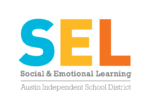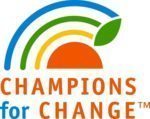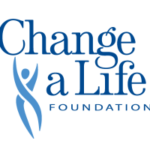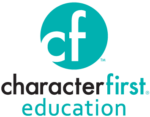The Center for Strategic Community Innovation (CSCi) is a non-profit committed to improving the quality of life in communities through public education, youth development, health and social services, juvenile justice, and community development. CSCi 's Community Schools Initiative is a school reform strategy that addresses the social and educational inequalities by working with the public, private, and non-profit sectors.
Center for Student Credit Card Education (CSCCE) is committed to providing young adults with credit card literacy. The center hopes that by increasing awareness about credit it will prevent more young people from suffering the consequences of abusing credit cards. An interactive program is available online that allows students to learn independently.
Center for the Improvement of Child Caring is a parenting and parenting education association that works to increase the likelihood that every child is raised effectively and humanely and offers parenting skill-building programs and numerous ways to bring family contribution into childhood care and educational systems.
As a research program at the Institute of Behavioral Sciences at the University of Colorado, The Center for the Study and Prevention of Violence offers an extensive database of research and literature.
UNC Charlotte provides resources and information to its students and others about healthy relationships.
CSEFEL provides resources for teaching SEL to young children.
Centervention's Social Emotional Learning Activities allow you to find lessons, activities, and printables in the following skill areas: Communication, Cooperation, Emotion Regulation, Empathy, Impulse Control, and Social Initiation.
Free resource site on trends, technology and tools. Here is the Top 100 Tools for Learning 2012 as voted for by 582 learning professionals worldwide. Below is the slideset available via Slideshare and beneath it the textual list.
Cerebral Palsy Guide is a national support organization dedicated to educating individuals and families about cerebral palsy. While raising awareness about this movement disorder, our team is also committed to providing informational support for children with CP and their parents and caregivers.
From the California Department of Public Health, Champions for Change offers free information, tips, and tools that empower low-income families to eat healthier and become more physically active.
This blog, sponsored by Youth Mentoring Connection (YMC) out of Los Angeles, informs you on programs and activities the YMC have executed successfully. If you are stumped on new activities to positively impact your mentees, head over to this blog and start brainstorming.
Devoted to improving PreK-12 STEM learning, Change the Equation provides the latest in STEM research and articles, a STEM program database, as well as a comprehensive overview of each state's progress in STEM education.
Participate in this Changing of the Seasons Scavenger Hunt to learn about how the Earth's orbit affects the weather.
"Changing the Way We Talk to Teens About Tragic Events" is an article about some strategies for talking to teens about mass shootings, terrorism or unexpected attacks.
Character education lesson plans organized by the Six Pillars of Character. Search for lesson by subject or by age.
The Character Education Partnership (CEP) is a nonpartisan coalition of organizations and individuals dedicated to developing moral character and civic virtue in our nation's youth as one means of creating a more compassionate and responsible society.
Resource guides with discussion questions, writing assignments, and students activities categorized by Elementary, Middle School, and High School.
Free character education lessons for elementary aged children in all platforms of education in a bold, fresh manor.
A chapter excerpt from Thomas Lickona’s, CHARACTER MATTERS: How to Help Our Children Develop Good Judgment, Integrity, and Other Essential Virtues (Simon & Schuster, 2004), which carefully explains why character education is important for children. There are also pointers on how to teach character and be the type of parents children are willing to listen to and respect.














